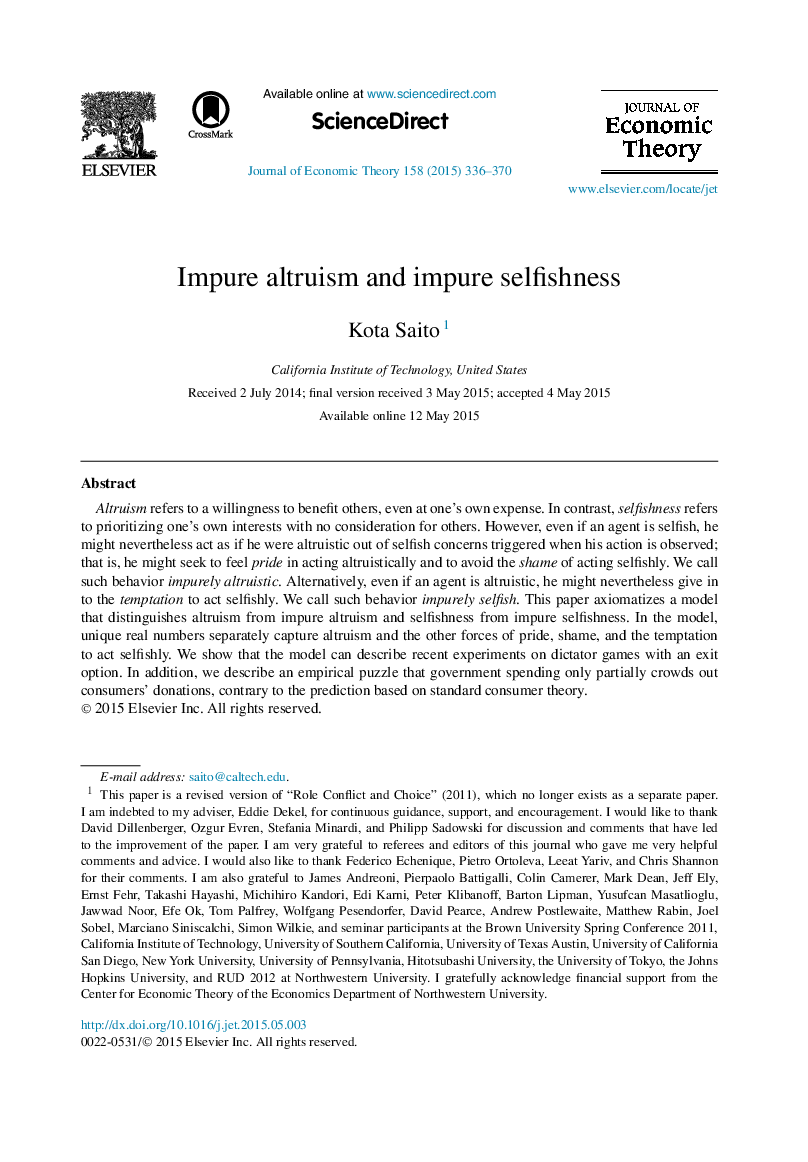| کد مقاله | کد نشریه | سال انتشار | مقاله انگلیسی | نسخه تمام متن |
|---|---|---|---|---|
| 956575 | 928475 | 2015 | 35 صفحه PDF | دانلود رایگان |
Altruism refers to a willingness to benefit others, even at one's own expense. In contrast, selfishness refers to prioritizing one's own interests with no consideration for others. However, even if an agent is selfish, he might nevertheless act as if he were altruistic out of selfish concerns triggered when his action is observed; that is, he might seek to feel pride in acting altruistically and to avoid the shame of acting selfishly. We call such behavior impurely altruistic. Alternatively, even if an agent is altruistic, he might nevertheless give in to the temptation to act selfishly. We call such behavior impurely selfish. This paper axiomatizes a model that distinguishes altruism from impure altruism and selfishness from impure selfishness. In the model, unique real numbers separately capture altruism and the other forces of pride, shame, and the temptation to act selfishly. We show that the model can describe recent experiments on dictator games with an exit option. In addition, we describe an empirical puzzle that government spending only partially crowds out consumers' donations, contrary to the prediction based on standard consumer theory.
Journal: Journal of Economic Theory - Volume 158, Part A, July 2015, Pages 336–370
